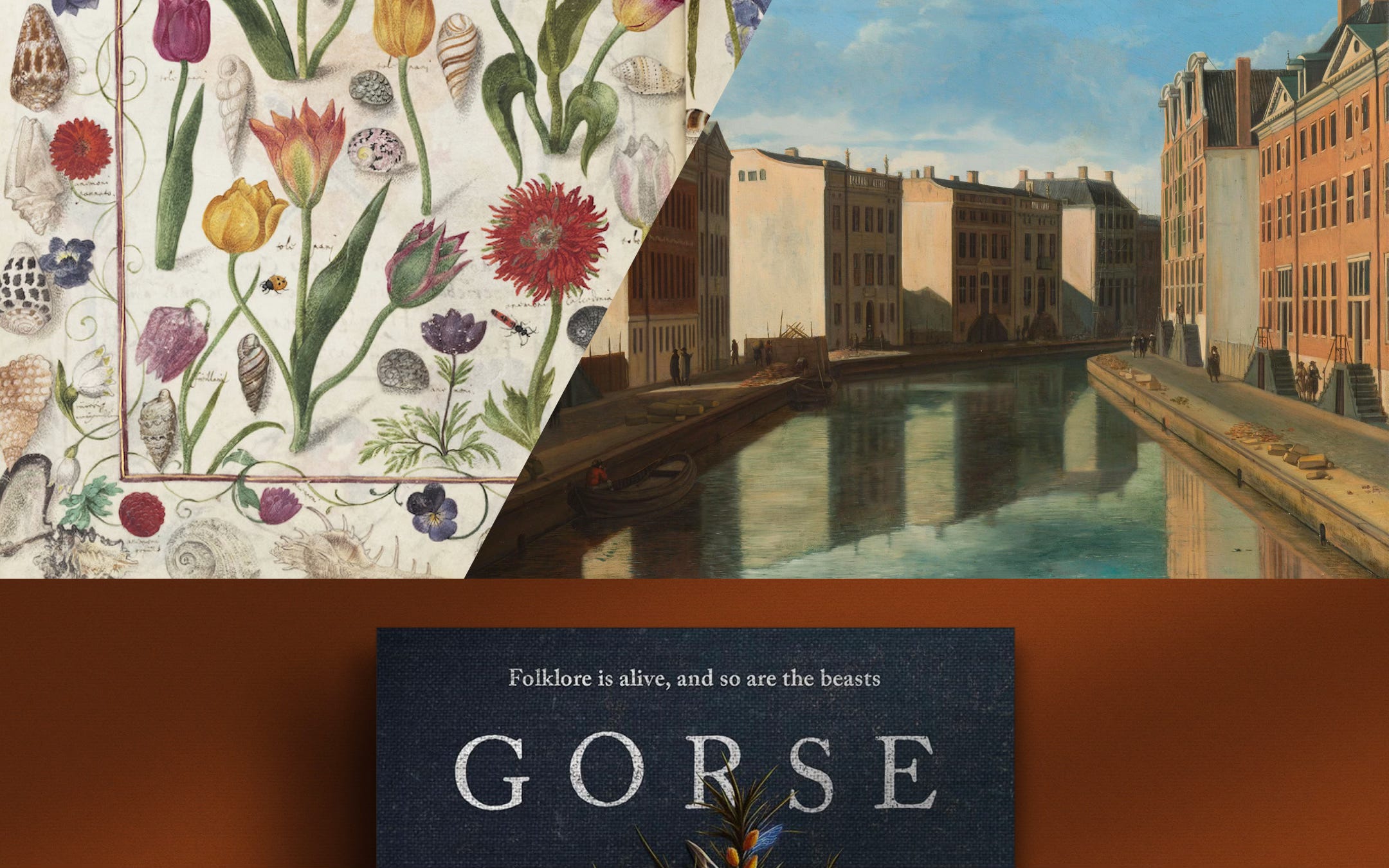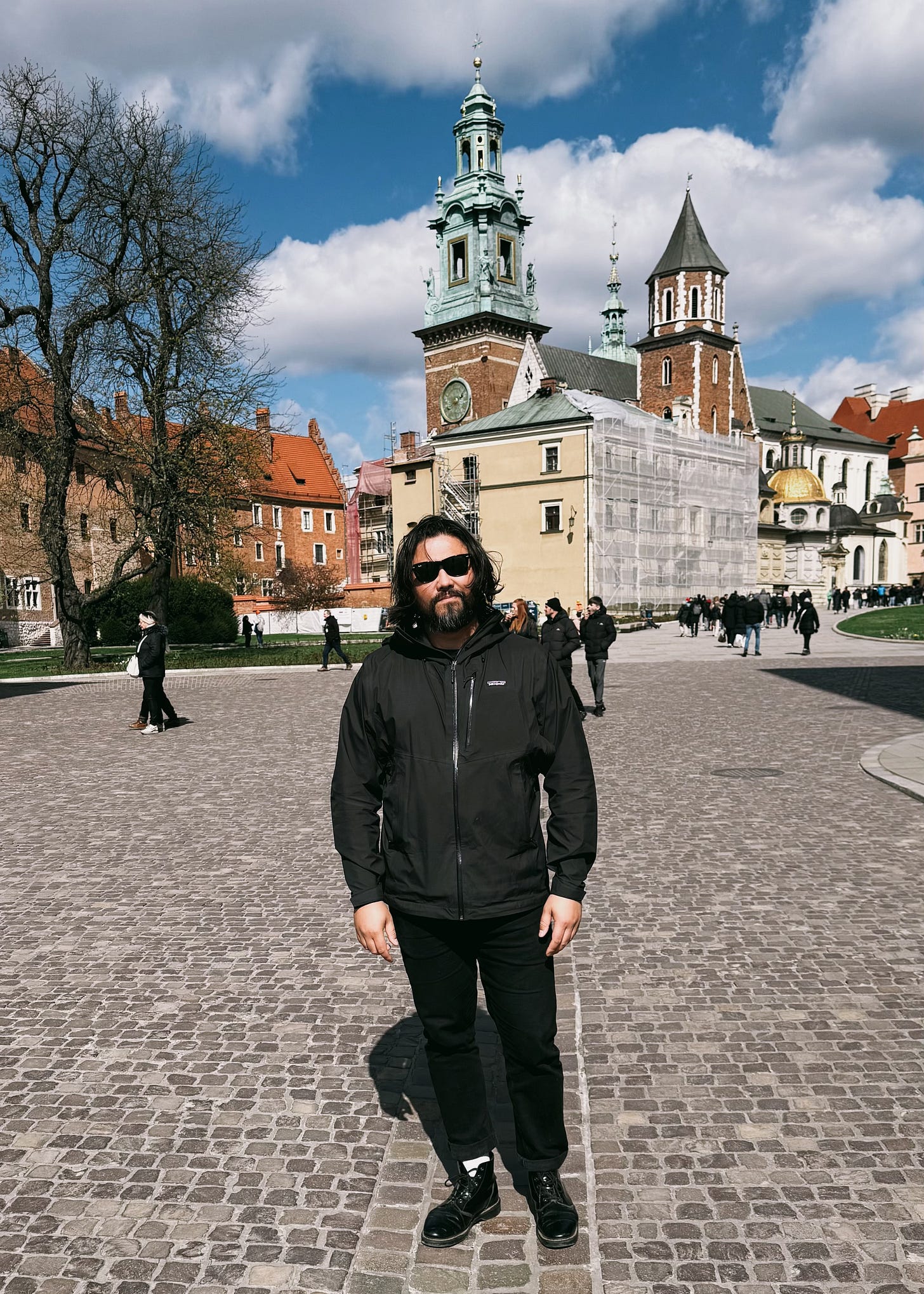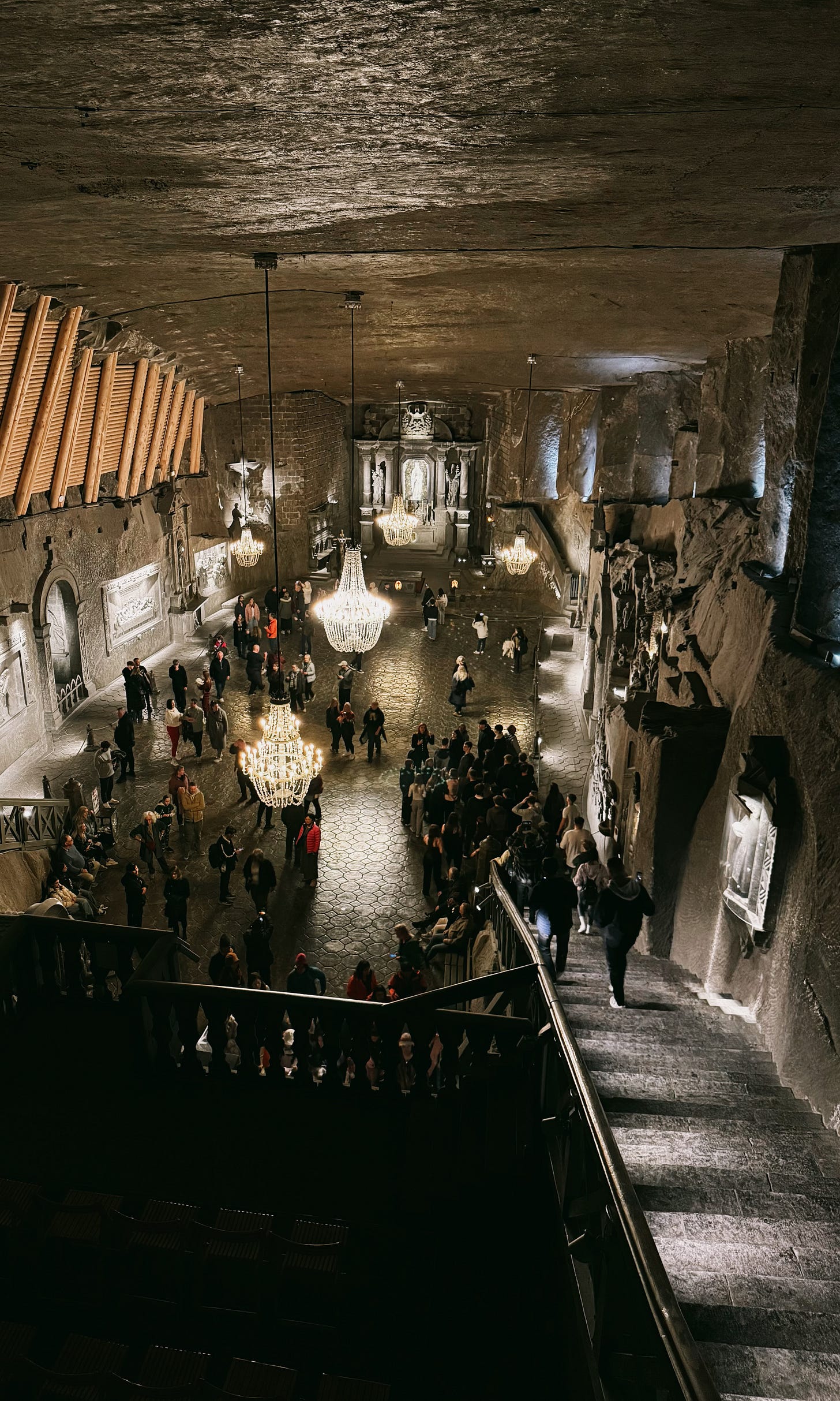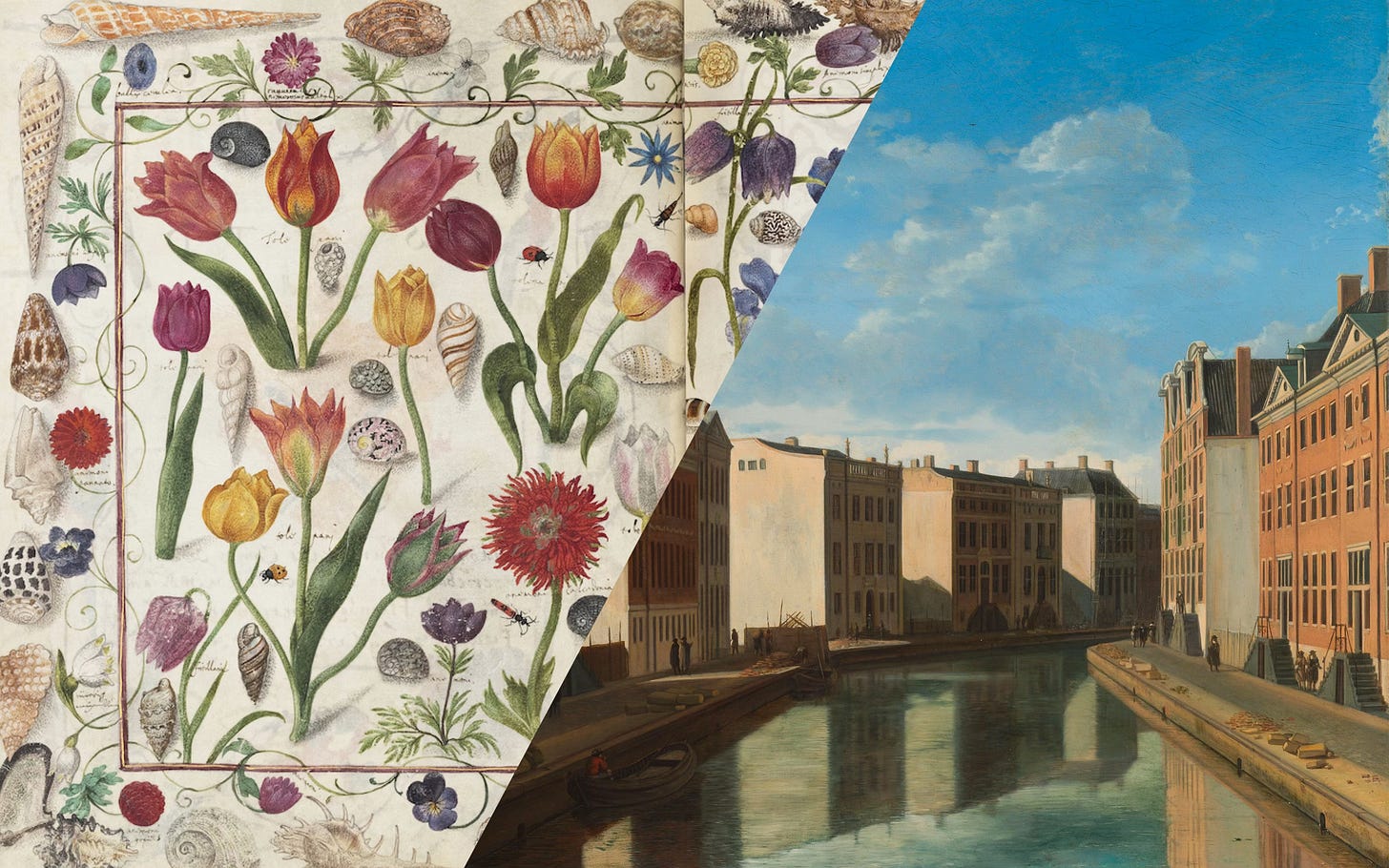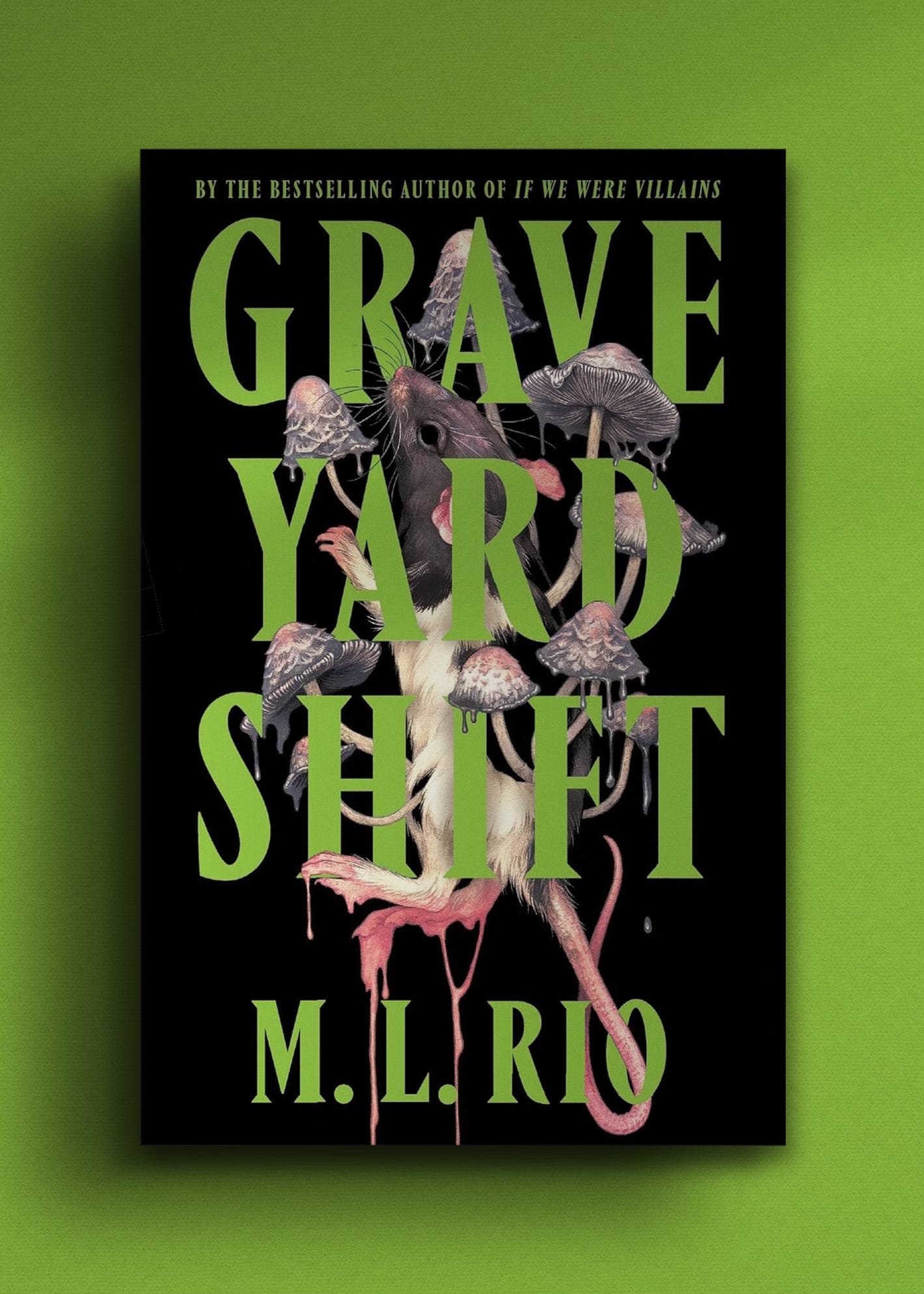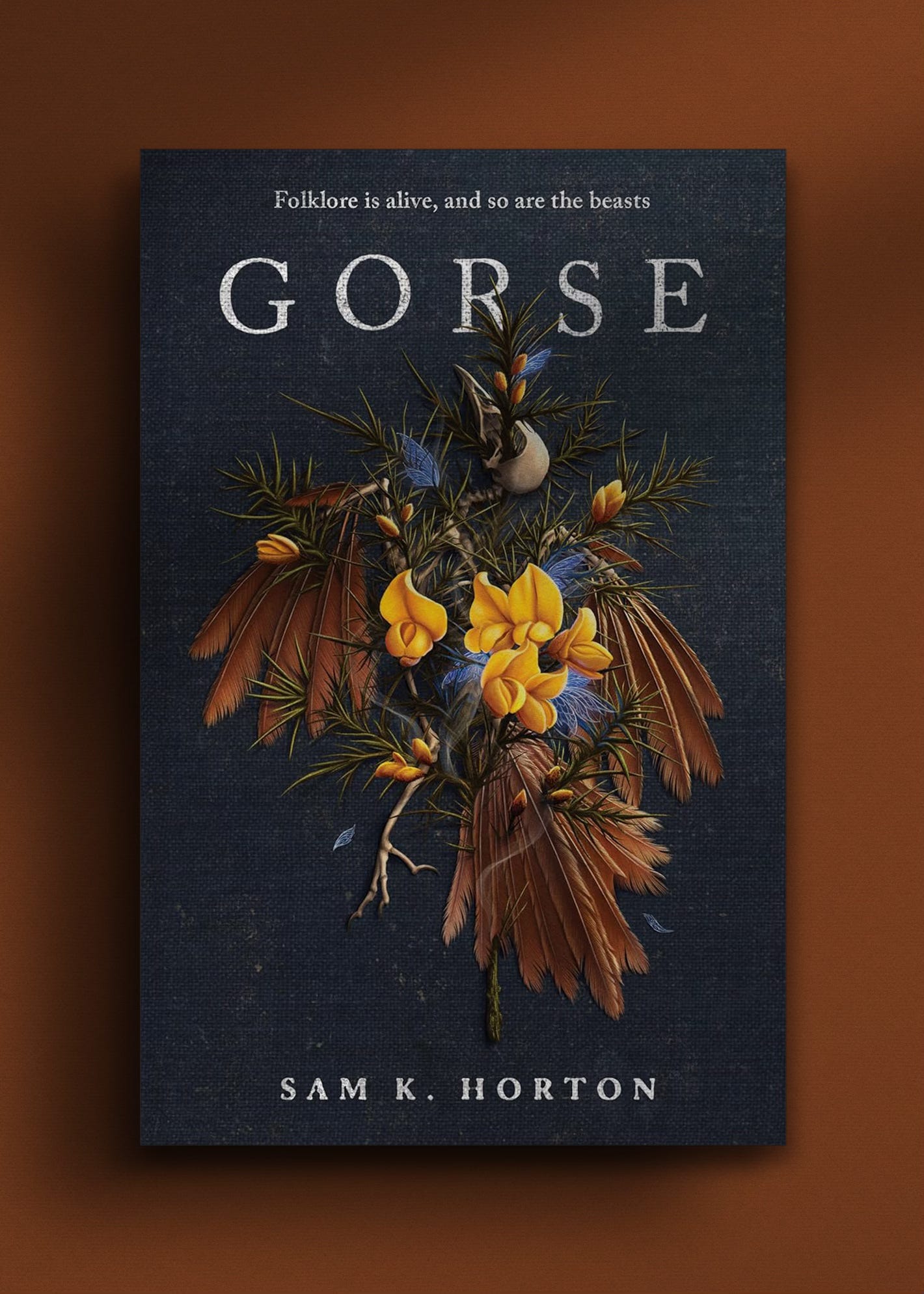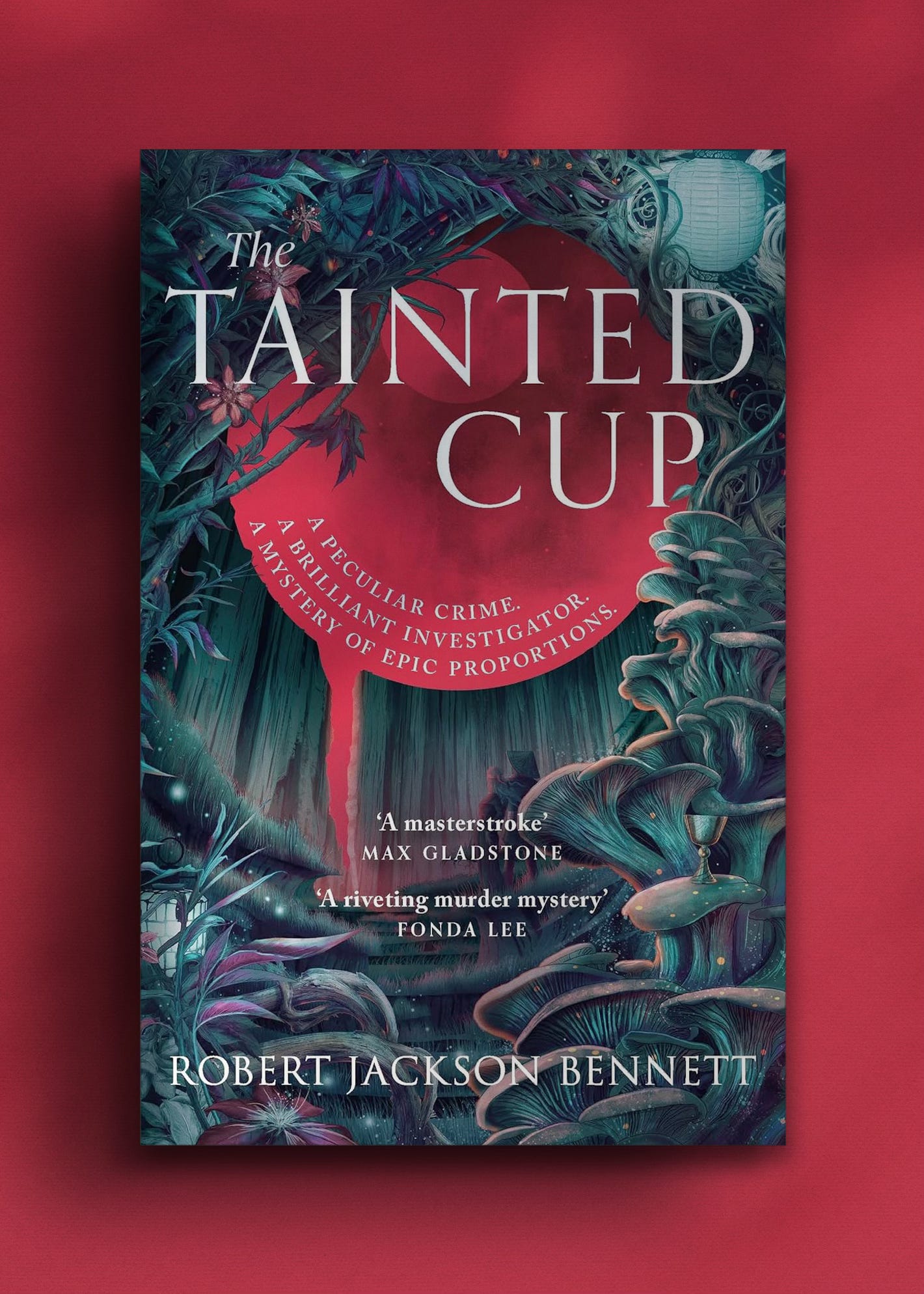The Dispatch #6 – On Greenland, What to Do Next & Resisting GenAi
May 2025's monthly update from Jordan Acosta, a British speculative fiction writer.
About Me
I'm a British 40-something speculative fiction writer, professional designer and creative director based near London. Over the last five years, I’ve worked on drafting my debut novel, Dark Century. The Dispatch is my monthly newsletter, published on the first Thursday of the month.
Format
Topics are broken down into:
CABLE – News & Events;
MINUTES – On Writing & Publishing;
VETTING – The Month's Reviews;
POSTINGS – Elsewhere, On/Off-line;
INTERCEPT – Quote of the Month
CABLE –
News & Events
Kraków 2025
This Easter was actually my fourth trip to this wonderful city in southern Poland, and the first in which I’d consider myself an actual tourist doing tourist things rather than passing through, or on a university field trip.
Amongst the sights was a visit to the 13th century Wawel Castle complex, containing the Archcathedral Basilica of Saint Stanislaus and Saint Wenceslaus, which outside of Mexico City, has some of the most elaborate chapels and crypts I’ve ever seen.



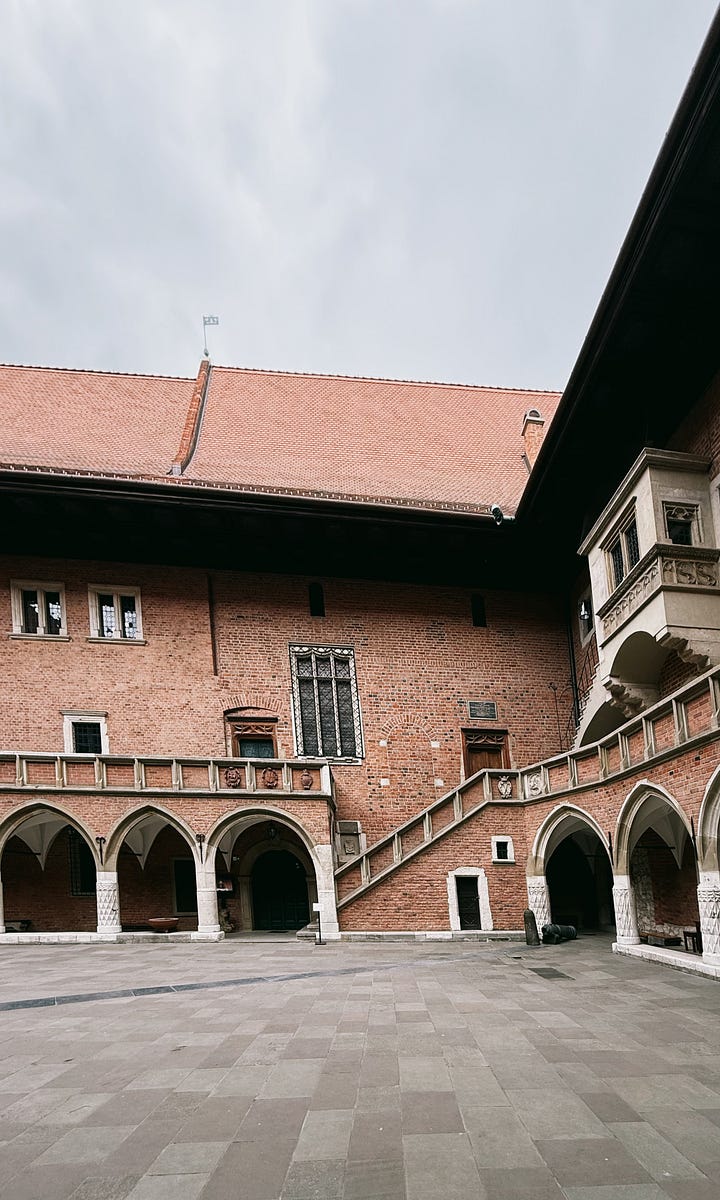
Other days were spent with an obligatory trip to Auschwitz Birkenau (a profoundly haunting experience, even the second time round) and the Wieliczka Salt Mine, whose underground chapels really are a wonder.
Highly recommended for anyone interested in central Europe and its history.
Greenland in the news
This oft-ignored landmass half the size of the contiguous United States is in the news cycle as the geopolitical gaze shifts north to the Arctic Circle. It also happens to be the setting for Dark Century in a future era, where what is happening now reaches one inevitable conclusion.
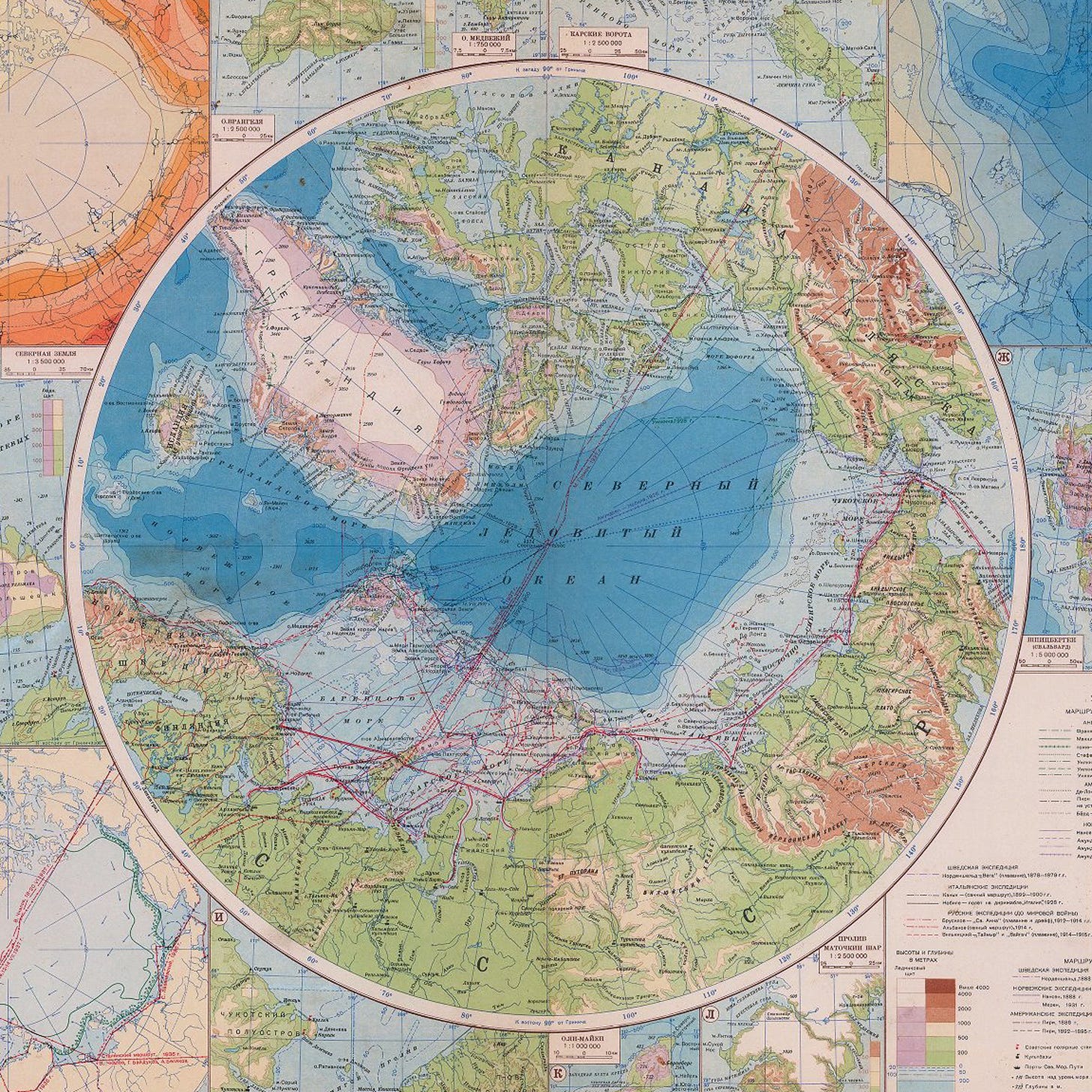
What we’re seeing now is a fundamental re-alignment of the world order established after WW2; and I am of the strong belief territorial conflict, resource acquisition and mass migration will begin to venture northwards. I’ve been pondering this scenario for over a decade, which is why in 2019 I began penning a story set in a future where climate catastrophe isn’t impending; it’s already been and gone, fading into myth and legend.
And that, as horrific as it is to contemplate, also provides a very rich setting for future stories; it’s called Dark Century for a reason.
MINUTES –
On Writing & Publishing
Resisting GenAI
As the tsunami that is Generative AI continues to flood the (dead) internet with hallucinations, racist propaganda and ‘content’, I’m astounded by the number of writers who claim they would never use Chat GPT, yet have no qualms about prompting AI imagery to illustrate their prose, blogs, publications, etc.
One of the popular claims for embracing this unprecedented abuse of copyrighted material is that it’s hard to find, and/or inconvenient to look up the rules about usage (and no, just because it’s on the internet it doesn’t qualify as ‘Fair Use’).
This claim is so absurd it compelled me to write a Commonplace post with links to millions of free-to-use images with no copyright restrictions, or in the public domain.
Click below for access 👇
Free-to-use Picture Resources for Writers
What to Do Next?
It’s well known amongst published authors that submission is a tedious and anxiety-inducing process, and it appears that 2025’s hopefuls are waiting longer than ever to hear back from commercial editors besieged by manuscripts.
I have an anxiety of a different sort, which is what to do next.
Something which I didn’t elaborate on in the last edition was that I wrote not one, but two more pitches for submission: the first was for a standalone historical horror; the second a follow up to Dark Century.
These pitches determine what I’m going to write over the next few years, so my choice of creative investment is very important. As of writing, three potential scenarios present themselves:
Dark Century sells, but would a publisher want a follow up, or sell it as a one off, and make an offer on a two book deal, on condition the second book is completely different?
Or, would a publisher be interested enough in Dark Century’s setting to commission a follow up?
Or does the book not sell, in which case, what should I do next?
I can’t forecast the future, so the only sensible option is to outline both book ideas in more detail over the next few months. Both are challenging and exciting, and time off after my last round of edits has given me space for ideas to percolate into something which resemble stories, and all the anticipation that comes with it, so I began writing the historical horror last week.
After days thinking on it, the events of the first chapter eventually coalesced together. I needed to write some prose in order to determine the overall tone of the story, and further explore my authorial voice which is only beginning to take shape after spending five years writing Book #1.
I suspected Book #2 was going to be a change of gears, but I underestimated the challenge of writing in a real historical era, beset by things called ‘facts’ I now have to work with. To date, I have amassed two dozen books, a dozen academic papers and three maps to help me plot the story and give me enough historical detail to give it that sense of authenticity.
My plan is to write the first two or three chapters, then write a detailed synopsis so I understand the first iteration of the story1. I guess there’s only one way to find out if it was worth the effort.
VETTING –
The Month's Reviews
Book Review:
Graveyard Shift by M.L. Rio
Wildfire, 2024
Sleep had eluded her since girlhood. She spent countless black hours twisting in the grip of night terrors, screaming and shrinking from some invisible menace until she was unceremoniously submerged in cold water. By the time she was ten, her parents had given up on the sleep training touted by every child psychologist and abandoned her to the supervision of late-night TV. By the time she was twenty, she had given up on every sleep aid that promised to alleviate her insomnia. By the time she was thirty, she had given up trying, tired of being tired, tired of telling people she was tired, tired of being bombarded with imbecilic advice about how to be less tired. Have you tried a warm bath? Warm milk? Herbal tea? Reading before bed always works for me!
I missed Rio’s first book If We Were Villains on account that at the same time it was published, I finally got round to reading Donna Tartt’s The Secret History, a book which I thought was terrifically written; I just happened to despise all the characters in it. Villains was doing the rounds, and I just couldn’t bring myself read another book that was oft-compared to The Secret History.
This seems unfair, but I’m a mood reader outside of reading for research, and anything resembling Dark Academia is currently out of my orbit. However, I’ve enjoyed reading Rio’s Notes and posts on Substack, and when I saw the rat-infested cover art for Graveyard Shift, I picked it up, intrigued by the idea of a story taking place over the course of a single night.
In her introductory note, Rio touches on the debilitating effects of insomnia, and this thematic restlessness infects the rag-tag misfits of Graveyard Shift, which lends the reading experience a disconcerting, helter-skelter quality when events progressively get weirder as the night ploughs on.
Graveyard Shift is a short read, so I won’t say too much about the plot, but if hanging out in cemeteries, college dive bars, and laboratory-stemmed conspiracies are your thing, then you’ll get a kick out of this novella.
Guess I’ll be reading If We Were Villains, after all.
Book Review:
Gorse by Sam K. Horton
Solaris, 2024
The water and the peat hold the history of the moor, bound up in the moss and the silt. An archive of the dead. Enmeshed in its layers are the ghosts of bears, of wolves, and the men who killed them. The pollen of flowers grown under a fresh-faced sun. It strips away everything, all flesh and bone until only a ghost remains. Memories free to head below without the weight of life to bind them, their bodies left to feed the earth.
I met Sam at 2024’s WorldCon in Glasgow through my writing pals MK Hardy, and I was immediately captivated by his pitch for Gorse, a period folk-horror set in the Britain’s south-west. Now we’re all agent siblings, I had no reason to not read it. After starting and stopping Gorse several times (for reasons unrelated to the book), I found my rhythm and tore through Horton’s vivid descriptions of a windswept landscape teeming with life.
Gorse, for all of its comparisons to folk tales, horror and historical fiction, is at its core, a murder mystery; one where the unusual setting plays a big part (in the best Gothic tradition) to hinder solving the central mystery — in this case, who killed the residents of Mirecoombe village.
I think the closest book I can compare Gorse to is China Miéville’s The City and the City, except Horton’s protagonist, Nancy, is a young woman navigating not just a world where Christianity becomes a predominant cultural force; but one where the Natural Order is threatened, and old bargains must be struck anew.
Particular praise must go to Horton’s magnificent prose, which is lyrical, verbose and appropriate for the setting; a strong, authorial voice in a publishing landscape which at times can feel sterile despite the current demand for the fantastical.
Gorse is a tightly woven and well-constructed folk-myth, written by an author who very much inhabits the majestic, haunting landscape so eloquently described.
Book Review:
The Tainted Cup by Robert Jackson Bennett
Hodderscape, 2024
These suffusions weren’t pleasant—many shortened the lives of those who took them, by years if not decades, and they almost always rendered people sterile—but Sublimes were irreplaceable. It took every bit of cunning and planning to survive what came from the seas to the east each wet season.
Most sought-after were the engravers, like myself, who had been suffused to remember all they saw, acting as living libraries of information. This was the enhancement I used as I described my investigation to Ana: remembering everything, describing all I’d seen, regurgitating every piece of spoken speech in the exact same tone I’d heard it said to me. Everything I’d captured during my time in that mansion I now gave to Ana, over the course of nearly four hours.
I’d heard good things from my online writing and reading groups about The Tainted Cup. I wasn’t disappointed, and made a concerted effort to carve as much time as I could during Easter to devour this secondary world police procedural set in a galactic empire powered by biological augmentation.
This fantasy Golden-Age mystery follows Dinios Kol, investigative assistant to the wonderfully sharp-and-equally-scathing Immunis Anagosa Dolobra as he arrives at the scene of a murder most unusual. Kol, as the above quote infers, is augmented for perfect recall, which affords his superior the convenience of not actually having to ever visit the scene of the crime, no doubt inspired by Rex Stout’s 1930s armchair detective, Nero Wolfe.
Kol’s subsequent investigation reveals the inner workings of the Khanum Empire; a complex (and corrupted) web of territories and alliances, built upon the efforts of a class of engineers whose main function is to keep monstrous creatures called Leviathans from entering the Emperor’s domains.
The fantasy investigation elements of are reminiscent of Joshua Reynold’s excellent Daidoji Shin series set in the Legend of the Five Rings universe. The Tainted Cup is an absorbing read and I’m looking forward to the sequel, A Drop of Corruption, which in Jackson Bennet’s own words, was partly inspired by the United Kingdom’s handover of Hong Kong to China; a historical event I actually witnessed with my own eyes, aged 13.
For crime fans looking for something a little different, I’d give Robert Jackson Bennett’s excellent novel a go.
You can find the full archive of all my short reviews, here.
POSTINGS –
Elsewhere, On/Off-line
As the Japanese came into sustained contact with western architectural styles across the late nineteenth and twentieth centuries, much was made of the differences. The philosopher Watsuji Tetsurō liked to claim that the sliding partitions of a Japanese home reflected the way that members of Japanese families considered themselves always connected to one another. The privacy afforded by shutting the partition was only ever partial – few sounds would struggle to cross a barrier made from thin paper – and only ever temporary.
The walls of Western homes, by contrast, were thick, heavy and immobile. To Watsuji - no stranger to politically-charged philosophical commentary - this suggested that family life in the West amounted to little more than convenient, self-interested cohabitation.
– Christoper Harding, Renovation & Romance in Rural Japan
Firstly, let's get one thing straight. Black authors are not lost. We’re here, and we’re writing. Pick any genre and you will find a Black author. We’re writing romcoms, crime fiction, middle-grade fantasy, romantasy, speculative fiction and everything in between. Whether traditionally published or self-published, we are constantly creating. The issue has never been about talent or output, it’s about visibility.
We’ve all heard the phrase: You can’t be what you can’t see. Readers can’t buy our books if they don’t know that they exist. How is a book written by a Black author expected to sell if they’re not given the shelf or window space in the bookshop. How is a book written by a Black author expected to sell if they’re not promoted in newspapers, magazines or on the radio?
– Nadine Matheson, The Case Of The Missing Black Author
Living in the Viking Age would’ve sometimes been a full-blown biological horror show.
One reason: parasites. Loads of them. Not just the scratchy nuisances like lice and ticks, but the proper nightmare-fuel sort—the ones wriggling about inside your guts. A recent study has revealed that the Vikings were riddled with intestinal parasites. Researchers examined ancient turd (a great archaeological source!) and found eggs from these unwanted guests, proving that both people and their livestock were teeming with them. Unsurprising, really, when you consider that humans and animals were often crammed together in less-than-sanitary living spaces.
– Irena Manea, Live like a Viking and you'll grow worms, not muscles
INTERCEPT –
Quote of the Month
“Writing is hard work. A clear sentence is no accident. Very few sentences come out right the first time, or even the third time. Remember this in moments of despair. If you find that writing is hard, it’s because it is hard.”
– William Zinsser, On Writing Well 30th Anniversary Edition (Collins, 2006)
Many thanks for reading. The Dispatch is a monthly roundup by British speculative fiction writer, Jordan Acosta. News, short reviews and more, published every first Thursday. You can subscribe at jordanacosta.co, and read previous editions, here.
If you no longer wish to receive emails from me, there’s an unsubscribe link at the bottom of this email.
I think there is a perception of writers who plan being inflexible. As a planner myself, I work on the assumption that the story will change as I write it. I find planning more like a compass, showing a trajectory rather than a prescriptive map. I can alter my direction at any point if the story demands it of me, and that’s fine, if not actually desired.


